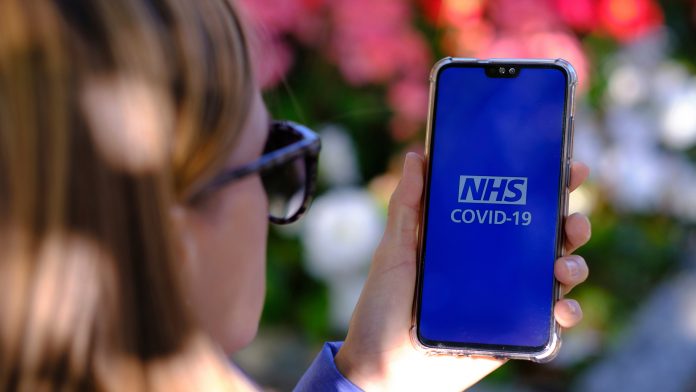
Experts from the University of Oxford and the University of Warwick have estimated the NHS COVID-19 app prevented around one million cases, 44,000 hospitalisations and 9,600 deaths during its first year.
The new research, published in Nature Communications, is the most comprehensive evaluation of the NHS COVID-19 contract tracing app to date. The NHS COVID-19 app was introduced to offer a quick and easy way to get the latest advice and to discover if you may have been exposed to COVID-19.
To understand its impact, researchers from the Pandemic Sciences Institute at the University of Oxford and the Department of Statistics at the University of Warwick worked together to analyse how the app helped control the transmission of COVID-19 in England and Wales.
How the NHS COVID-19 app saved thousands of lives
The researchers analysed app data to show its effect on the transmission of COVID-19 in England and Wales. The app experienced high user engagement, identified infectious contacts well, and helped to prevent significant numbers of cases, hospitalisation and deaths.
Professor Christophe Fraser, Principal Investigator at the Pandemic Sciences Institute at the University of Oxford’s Nuffield Department of Medicine and the paper’s senior author, said: “Many of us will remember being ‘pinged’ by the NHS COVID-19 app at the height of the pandemic, and the impact that self-isolating had on our daily lives.
Our research shows that the NHS COVID-19 app worked, and it worked well. Through our analysis, we estimate the app saved almost 10,000 lives in its first year alone.”
The NHS COVID-19 app was launched in England and Wales on 24 September 2020, with over ten million people installing it in the first few days. The app remained popular in its first year, with a high proportion of people using it compared to similar apps across Europe.
Breaking the chain of transmission in one million cases
The NHS COVID-19 app used Google and Apple’s Bluetooth contract tracing function to reduce transmission. The app notified people at higher risk of having been infected, so they could reduce their chances of passing on an infection.
The researchers also found that an app notification meant you were at least twice as likely to be infected as a non-notified app user, and at peak times, this was as high as 77 times more likely.
Dr Isabel Oliver, Chief Scientific Officer at UK Health Security Agency said: “The NHS COVID-19 app is a really practical example of how modern technology can be used to protect the nation’s health and the economy during a pandemic by letting people know if they had been in contact with a positive case of COVID-19 and providing advice to help reduce the risk of passing the virus on to other people.
“These findings indicate that the app made a key contribution to breaking the chains of transmission with an estimated one million cases, 44,000 hospitalisations, and 9,600 deaths prevented in the first year.
“We’ve consolidated the skills, technology and lessons of NHS Test and Trace, such as the potential applications of a contract tracing mobile app, into the UK Health Security Agency to inform preparedness for future pandemic threats. Our learnings from the pandemic continue to shape how we and our partners around the world, respond to future public health risks.”








